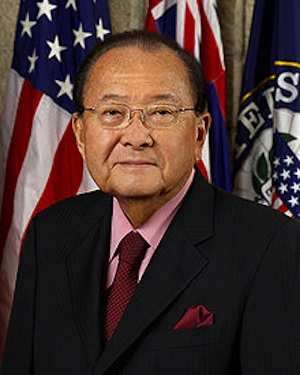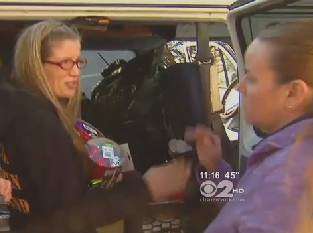Every now and then, during this era of heated partisanship, an event emerges that brings both sides together in the U.S. Congress. When news broke yesterday, tributes began pouring in for a beloved member and war hero, Hawaiian Senator Daniel Inouye, who died yesterday at the age of 88.
He served more than five decades in Congress, representing Hawaii since 1959, when the islands achieved statehood. As the President pro tempore of the United States Senate, he was third in the line of succession to the U.S. presidency, behind Vice President Biden and House Speaker John Boehner.
Vice President Joe Biden, who also served with Inouye as a Democrat in the Senate, said, "He was one of the most honorable men I ever met in my life."
Across the aisle, Republican Senator John McCain, who regularly fought with Inouye over appropriation matters said, "No one — no one — ever, ever accused Dan Inouye of partisanship or unfairness." Sen. Rob Portman (R-Ohio) called Inouye "a true role model, not only for his acts of valor as a hero in World War II… but also for his humility and graciousness."
"He was a counselor to younger members like me, a great listener, and a Senator who always put his nation and the people of Hawaii ahead of partisan politics and his own ambition," Portman said.
While many Japanese-Americans were being in internment camps based on their race, Inouye, who was of Japanese heritage, gave up his pre-medical studies at a university to enlist in the US Army. His battalion, made up of Japanese-Americans, was the most decorated unit of the war.
He was leading an assault on the last and most unyielding line of German defense in Italy. As he led his platoon in a flanking maneuver, three German machine guns opened fire from covered positions just 40 yards away, pinning his men to the ground. Inouye stood up to attack and was shot in the stomach; ignoring his wound, he proceeded to attack and destroy the first machine gun nest with hand grenades and fire from his Thompson submachine gun. After being informed of the severity of his wound by his platoon sergeant, he refused treatment and rallied his men for an attack on the second machine gun position, which he also successfully destroyed.
As his squad distracted the third machine gunner, Inouye crawled toward the final bunker, eventually drawing within 10 yards. As he raised himself up and cocked his arm to throw his last grenade into the fighting position, a German inside the bunker fired a rifle grenade that struck him on the right elbow, severing most of his arm and leaving his own primed grenade reflexively "clenched in a fist that suddenly didn't belong to me anymore". He ordered his comrades to stay back, while he pried the live grenade from his right hand and used his left to toss the grenade into the bunker destroying it.
Due to the loss of his arm, Inouye abandoned his plans to become a surgeon, and returned to college to study political science under the G.I. Bill.
In a statement, President Obama praised his record of service and spirit of bipartisanship in Congress calling him, "someone revered by all of us lucky enough to know him."
Fellow Hawaiian Senator Daniel Akaka said, "Every child born in Hawaii will learn of Dan Inouye, a man who changed the islands forever."










Be the first to comment